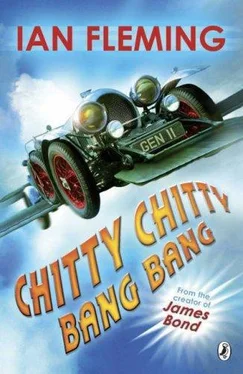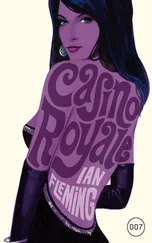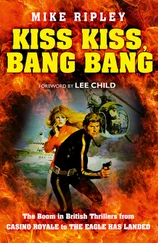
by IAN FLEMING
These stories are affectionately dedicated to the memory of the original CHITTY-CHITTY-BANG-BANG, built in 1920 by Count Zborowski on his estate near Canterbury, England.
She had a pre-1914 war, chain drive, 75 horsepower Mercedes chassis in which was installed a six-cylinder Maybach aero engine—the military type used by the Germans in their Zeppelins.
Four vertical overhead valves per cylinder were operated by exposed push rods and rockers from a camshaft on each side of the crankcase, and two Zenith carburetors were attached, one at each end of a long induction pipe.
She had a gray steel body with an immense polished hood eight feet in length, and weighed over five tons.
In 1921, she won the Hundred M.P.H. Short Handicap at Brooklands at 101 miles per hour, and, in 1922, again at Brooklands, the Lightning Short Handicap. But in that year she was involved in an accident and the Count never raced her again.
I.F.
This story takes place in England and, as in England they use English money—peculiarly enough—the American reader will need to know a little—though not a lot—about English currency. So, a pound is worth approximately $2.80 and a shilling is worth 14 cents. And, if your arithmetic is good enough, you should be able to figure out exactly how much things cost in this story.

Chapter One
MOST MOTORCARS are conglomerations (this is a long word for “bundles”) of steel and wire and rubber and plastic, and electricity and oil and gasoline and water, and the toffee papers you pushed down the crack in the back seat last Sunday. Smoke comes out of the back of them and hornsquawks out of the front, and they have white lights like big eyes in front, and red lights behind. And that is about that—just motorcars, tin boxes on wheels for running about in.
But some motorcars— mine, for instance, and perhaps yours—are different. If you get to like them and understand them, if you are kind to them and don’t scratch their paint or bang their doors, if you fill them up and pump them up when they need it, if you keep them clean and polished and out of the rain and snow as much as possible, you will find, you MAY find, that they become almost like persons—MORE than just ordinary persons—MAGICAL PERSONS!!!
You don’t believe me? All right then! You just read about this car I’m going to tell you about! I believe you can guess its name already her name, I should say. And then see if you don’t agree with me. All motorcars aren’t just conglomerations of machinery and fuel. SOME ARE….
Once upon a time there was a family called POTT. There was the father, who had been in the Royal Navy, COMMANDER CARACTACUS POTT. (You may think that Caractacus sounds quite a funny name, but in fact the original Caractacus was the British chieftain who was a sort of Robin Hood in A.D. 48 and led an English army against the Roman invaders. I expect since then there have been plenty of other Caractacuses, but I don’t know anything about them.) Then there was the mother, MIMSIE POTT and a pair of eight-year-old twins—JEREMY, who was a black-haired boy, and JEMIMA, who was a golden-haired girl—and they lived in a wood beside a big lake with an island in the middle. On the other side of the lake, M.20, the big turnpike along the Dover Road, swept away toward the sea. So they had the best of both worlds—lovely woods for catching beetles and finding birds’ eggs, with a lake for newts and tadpoles, and a fine big road close by so that they could go off and see the world if they wanted to.
Well, almost, that is. But the truth of the matter was that they hadn’t got enough money between them to buy a car. All the money they had went to necessities—food and heat and light and clothes and all those boring things that one doesn’t really notice but families have to have. There was only a little left over for birthday and Easter and Christmas presents and occasional surprise outings—the things that REALLY matter.
But the Potts were a happy family who all enjoyed their lives and since they were not in the least sorry for themselves, or sorry that they had no motorcar to go whirling about in, we need not be sorry for them either.
Now Commander Caractacus Pott was an explorer and an inventor and that may have been the reason why the Pott family was not very rich. Exploring places and inventing things can be very exciting indeed, but it is only very seldom that, in your explorations, you discover a really rare butterfly or animal or insect or mineral or plant that people will pay money to see, and practically never that you discover real treasure, like in books—gold bars and diamonds and jewels in an old oak chest.
As for inventions, much the same troubles apply. People all over the world, in America, Russia, China, Japan—let alone England and Scotland and Wales and Ireland—are inventing or trying to invent things all the time—every kind of thing from rockets that fly to the moon to ways of making India rubber balls bounce higher. Everything, everything, everything is being invented or improved all the time by somebody somewhere—whether by teams of scientists in huge factories and laboratories, or by lonely men sitting and just thinking in tiny workshops without many tools.
Just such a solitary inventor was Commander Caractacus Pott, and I am ashamed to say that, because he was always dreaming of impossible inventions and adventures and explorations in the remotest parts of the earth, he was generally known in the neighborhood as Commander CRACKPOTT!! You may think it’s rude, and so it is, but Commander Pott was a humorous man and he knew his own shortcomings very well, so when he heard that that was his nickname in the neighborhood, he was not at all cross. He just roared with laughter and said, “I’ll show ’em!” and disappeared into his workshop and didn’t come out for a whole day and a night.
During that time, smoke came out of the workshop chimney and there were a lot of delicious smells. And when the children put their ears to the locked door, they could hear mysterious bubblings and cooking-poppings, if you know what I mean, but nothing else at all. When Commander Pott came out, he was so hungry that first of all he ate four fried eggs and bacon and drank a huge pot of coffee, and then he asked Mimsie to call Jeremy and Jemima, who were getting in an awful mess digging out a water rat’s hole on the bank of the lake. (They never caught the water rat. He dug down faster than they did.)
The twins came and stood side by side looking at their father, wondering what his invention had been this time. (Commander Pott’s inventions were sometimes dull things like collapsible coat hangers; sometimes useless things like edible phonograph records; and sometimes clever things that just, only just, wouldn’t work, like cubical potatoes [easy to slice and pack and peel but expensive to grow each in its little iron box] and so on.) Commander Pott, looking very mysterious, dug in his pockets and produced a handful of what looked like round colored sugar candies, each a bit bigger than a marble, wrapped in paper. And, still looking mysterious, he chose a red one for Jeremy and a green for Jemima and handed them over.
Well, candies are always candies, thought the children, even though they didn’t look very exciting, so they unwrapped them and were just about to pop them in their mouths when Commander Pott cried, “Wait! Look at them first—very, very carefully!”
Читать дальше












